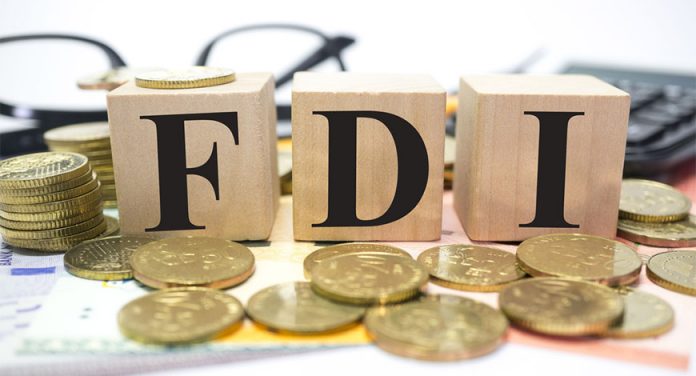This article is written by Abhishek Verma, pursuing Diploma in International Business Law from LawSikho.
This article has been published by Abanti Bose.
Table of Contents
Introduction
The outbreak of COVID-19 was not only a public health crisis but had also severely shattered the global economy and financial markets. It was the time where each of the affected countries’ focus was to safeguard the health of its citizens somehow and at the same time to manage their economy. The prime focus at that time of the world was the healthcare sector, as people were exploiting it, which raised serious concern among the governments and various organizations who work for the welfare of the people. The European Union Commission also showed concern about certain important sectors of its Member States. The Healthcare sector was prime in its Communication letter to the Member States outlining the need to regulate the foreign direct investment and free movement of capital from third countries through FDI Screening Regulation. The Government of Italy expanded the ambit of its pre-existing regime of Golden Power law and inserted in various sectors of strategic importance.
Role of FDI in Italy and its economy
Italy has a very open and welcoming economy for investors. It has been working towards gaining investors’ trust and confidence and has taken significant steps. As a result, it has been ranked 8th globally and 4th in the EU in the 2019 FDI Confidence Index.
Businesses in Italy have duty-free access to more than 30 national markets within the European Economic Area and over 500 million high-earning consumers.
In the last few years, worldwide direct investments in Italy have grown more than its GDP and exports, making it one of the main drivers of globalization.
Impact of COVID-19 on Italy’s economy
The outbreak of the COVID-19 virus led many European countries to lock down significant parts of their economies to contain the virus outbreak. And these lockdown measures have had a marked adverse impact on the Italian economy.
Lockdown in the whole country was imposed from March 9, 2020, until the end of May 2020, which resulted in a decline of Italian GDP by 5.4% in the first quarter of 2020 and in the second quarter by 12.4%.
Due to this crisis, the European Union (EU) Commission felt a need to regulate the market/economy of its Member States. In furtherance of that, on March 25, 2020, it laid down specific measures/guidelines for screening the Foreign Direct Investment to protect their critical assets and technologies, especially of the medical sector, from becoming controlled by foreign entities during the COVID-19 pandemic. As a result, and by adopting these guidelines from the EU Commission, the Government of Italy enacted a series of emergency regulations aimed at safeguarding the Italian economy, which included the exercise of the Golden Power to regulate the Foreign Direct Investment, especially from the non-EU countries.
Role of European Commission
The European Commission is the European Union’s politically independent arm established in the year 1958 to promote the general interest of the EU by proposing and enforcing legislation as well as by implementing policies and the EU budget. In addition, it represents the EU countries internationally by speaking on their behalf in particular areas of trade policy and humanitarian aid and negotiates international agreements for the EU.
Golden Power of government in Italy
The Golden Power of the Italian Government enables it to regulate the Foreign Direct Investment (FDI) and corporate transactions by limiting or stopping them.
The concept of Golden Power came into existence pursuant to Law Decree No. 21 dated March 15, 2012, which was converted into law by Law No. 56 on May 11, 2012.
Initially, through Law Decree no. 21/2012 (which was converted into Law no. 56/2012), the Italian Government was allowed to exercise the Golden Powers to prohibit or to put restrictions on the purchase of a company’s shares with regard to the companies operating in the energy, transport and communications sectors by any non-European entity, and as to the defence and national security sector, the same powers could have been exercised by the Italian Government whenever the purchaser was an entity other than the Italian state.
Amendment by Law Decree no. 105/2019, converted into Law no. 133/2019
This amendment was made to extend the Italian Government’s powers to companies active in:
i. Critical infrastructures (physical or virtual), including energy, transportation, water, health, communications, media, data processing or storage, aerospace, defence, electoral, financial infrastructures, sensitive areas, as well as investments in land and buildings essential for the use of such infrastructures; and
ii. Critical technologies and dual-use products, including artificial intelligence, robotics, semiconductors, cyber security, aerospace, defence, energy storage, quantum and nuclear energy, as well as nanotechnology and biotechnology.
Current ambit of Golden Power review in Italy
Considering the shattering situation of the economy during the peak of the COVID-19 pandemic, on April 9, 2020, the Italian Government decided to expand the ambit or scope of application of the Golden Power through a temporary regime established by Law Decree No. 23 of 2020, under which a filing obligation is triggered upon:
- EU and non-EU investors, in case of direct or indirect acquisitions of a controlling interest; and
- Non-EU investors only in the case of direct or indirect acquisitions of non-controlling minority stakes (acquisition of at least a 10 percent shareholding or 10 percent of the voting rights, and when the following thresholds are exceeded: 15 percent, 20 percent, 25 percent, 50 percent), provided that the value of the investment exceeds €1 million.
This temporary regime is applicable only up to December 2021, and the standard regime will be applicable from January 2022 unless any extension on the current temporary regime is being notified/communicated.
Scope of Golden Power review of Italy
The Golden Power Law of Italy enables its Government to review any transaction which could be a material threat to the essential or fundamental interest of its nation. The fields and the sectors on which this power applies have already been mentioned above under the heading: Golden Power of the Government in Italy and its amendments till date. But here are some common transactions that come under the ambit of the Golden Power of the Italian Government and for which pre-clearance is mandatory:
- Purchase of stock or assets, mergers, and joint ventures in which the investing partner in the Italian assets is a foreign entity or partner
- Any kind of agreements or contracts with non-EU persons relating to 5G technology, components, services, or any kind of infrastructure thereof.
If any of the above-mentioned transactions are to be executed, any of the sellers or purchasers may make the filing to get the clearance.
Also, there are certain different triggering points of filing different kinds of transactions under different sectors, which are mentioned herein below:
– If there is an acquisition or any other transaction in the defence and national security sectors where even certain minimum non-controlling stakes are acquired.
– If a controlling stake is acquired by an EU entity or if a stake of no less than 10% is acquired by a non-EU entity in a sector other than defence and national security sectors.
The purchaser in any of the above transactions would be liable for monetary sanctions of not less than 1% of the cumulative turnover realized by the companies involved in the transaction or up to twice of the value of the transaction, or between 25% and 150% of the value of the transaction, solely with respect to 5G technology transactions.
Golden Power review process
The process of exercising Golden Power review must be initiated within ten days of the signing or adoption of any corporate resolution (subject to review) approving the transaction. After taking up the transaction for the purpose of review under its Golden Power, the Government has a period of 45 days, during which any voting rights attached to the acquired interests are frozen until the clearance is given.
The Review Period may be extended only once, for a maximum of:
(i) 10 business days if the Italian Government requests additional information from the filing person and
(ii) 20 business days if the Italian Government requests additional information from a third party (a party other than the filing party).
Although other EU member states or the EU Commission can take up the required transaction to be reviewed either independently or at the request of the Italian Government, the final decision of authorizing the foreign investment would be of the Italian Government only. But at the same time, those member states or the EU commission may raise concerns or issue advisory upon any such transaction.
EU screening guidelines and regulations for FDI
In pursuant to the FDI Screening Regulation, issued in March 2019, the European Union has established an EU-wide mechanism/framework through which the European Commission and other member states can coordinate their actions on foreign investments. The Commission and the Member States have come up with certain necessary operational requirements for the full and ideal application of the Regulation. These requirements are:
- Regularly intimating the Commission about their existing national investment screening mechanism.
- Establishing formal contact points and secure channels with the Commission and the other Member States to exchange information and analysis.
- Developing procedures for the Member States and the Commission to quickly react to FDI concerns to issue opinions.
- Updating the list of projects and programs of Union interest annexed to the Regulation.
Following these recommendations, the Member States have agreed to comply or coordinate (informally) where the FDI transactions impact the EU.
Conclusion
Italy has been a very appealing and welcoming place for investors, and it has been working for a long time towards gaining the trust and confidence of investors. But at several times, the European Union Commission, being a body established to promote the general interest of the European Union, has shown concern about the economy of its Member States. Hence, at times it has laid down certain guidelines for its Member States outlining the need to regulate certain sectors by restricting Foreign Direct Investments from different EU and non-EU countries. The Italian Government extended “Golden Powers” on FDI during COVID -19 emergency, which has led to an increase in its ambit. During the outbreak of the COVID-19, the EU Commission felt a need to safeguard certain sectors of strategic importance among which the healthcare sector was of prime importance at that time, for which it laid down guidelines for its Member States to regulate those sectors of prime importance and also the need to review the FDI Screening. Italy being a Member State of the European Union has legislated certain laws to do the same. For that, it has passed a decree which provides the Government to exercise the Golden Power Law, which enables it to regulate the FDI transactions through restricting and prohibiting certain kinds of transactions which are pertaining to the sectors which are crucial for the Government and the said transaction could be a threat to the nation’s interest. It is for a temporary period. While appreciating the Government’s efforts to complete and clarify the regulatory framework, there are still uncertainties as to the subjective and objective scope of the Golden powers, which will require case-by-case analysis.
References
- https://www.ice.it/en/invest/foreign-direct-investments
- https://www.whitecase.com/publications/alert/covid-19-italy-expands-golden-power-review-foreign-investments
- https://european-union.europa.eu/institutions-law-budget/institutions-and-bodies/institutions-and-bodies-profiles/european-commission_en
- https://trade.ec.europa.eu/doclib/docs/2020/march/tradoc_158676.pdf
- https://ec.europa.eu/commission/presscorner/detail/en/ip_20_1867
- https://www.natlawreview.com/article/reflections-covid-19-views-italy
Students of Lawsikho courses regularly produce writing assignments and work on practical exercises as a part of their coursework and develop themselves in real-life practical skills.
LawSikho has created a telegram group for exchanging legal knowledge, referrals, and various opportunities. You can click on this link and join:
Follow us on Instagram and subscribe to our YouTube channel for more amazing legal content.
 Serato DJ Crack 2025Serato DJ PRO Crack
Serato DJ Crack 2025Serato DJ PRO Crack











 Allow notifications
Allow notifications


